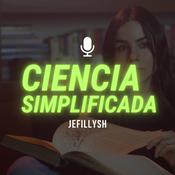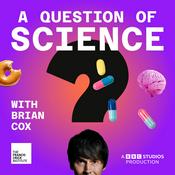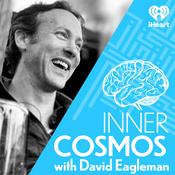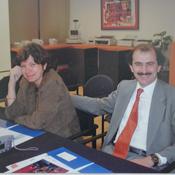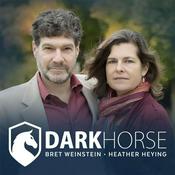94 episodios

Episode 72: Scientismus - I
02/1/2026 | 47 min
In this two-part episode, we delve into the topic of scientism. Is science the best way to generate knowledge? Or are we giving too much deference to science if we believe this? In this first part, we discuss what scientism is, what - if anything - is wrong with scientism, and whether it is bad to be a scien-ti-sim-ist? References: Haack, S. (2012). Six Signs of Scientism. Logos & Episteme, 3(1), 75–95. https://doi.org/10.5840/logos-episteme20123151 Brown, N. J. L., Sokal, A. D., & Friedman, H. L. (2013). The complex dynamics of wishful thinking: The critical positivity ratio. American Psychologist, 68(9), 801–813. https://doi.org/10.1037/a0032850 Peels, R. (2023). Scientism and scientific fundamentalism: What science can learn from mainstream religion. Interdisciplinary Science Reviews, 48(2), 395–410. https://doi.org/10.1080/03080188.2022.2152246 de Ridder, Jeroen. “Science and Scientism in Popular Science Writing.” Social Epistemology Review and Reply Collective 3, no. 12 (2014): 23-39. https://social-epistemology.com/2014/11/03/science-and-scientism-in-popular-science-writing-jeroen-de-ridder/ Meehl, P. E. (2004). Cliometric metatheory III: Peircean consensus, verisimilitude and asymptotic method. The British Journal for the Philosophy of Science, 55(4), 615–643. Mizrahi, M. (2017). What’s so bad about scientism? Social Epistemology, 31(4), 351–367. https://doi.org/10.1080/02691728.2017.1297505 Hayek, F. A. (1952). The Counter-Revolution of Science: Studies on the Abuse of Reason. Glencoe, Illinois: The Free Press. Rulkens, C. C. S., Peels, R., Stols-Witlox, M., Meloni, S., Lechner, I. M., & Bouter, L. (2025). The attribution of two portraits of Rembrandt revisited: A replication study in art history. Humanities and Social Sciences Communications, 12(1), 1347. https://doi.org/10.1057/s41599-025-05523-2

Episode 71: Commentarius Scientificus: Fraus?
29/11/2025 | 54 min
In this episode, we discuss "Is the scientific paper a fraud?" by Sir Peter Medawar. Shownotes Medawar, P. (1999). Is the scientific paper a fraud? Communicating Science: Professional Contexts, 27–31. Ross, G. R., Meloy, M. G., & Bolton, L. E. (2021). Disorder and downsizing. Journal of Consumer Research, 47(6), 959–977. The footnote reads: "Like many consumers, we were inspired by Marie Kondo to declutter our homes—and also to conduct this research! Note that our work is not a test of the KonMari method per se but rather an investigation of ideas—on dis/order, waste aversion, and selection/rejection (as these quotes illustrate)—inspired by her writing and the surprising lack of research on downsizing." Karataş, M., & Cutright, K. M. (2023). Thinking about God increases acceptance of artificial intelligence in decision-making. Proceedings of the National Academy of Sciences, 120(33), e2218961120. Richard Feynman on finding new laws

Prologus 71: Is the Scientific Paper A Fraud (P. Medawar)
21/11/2025 | 16 min
Medawar, P. (1999). Is the scientific paper a fraud? Communicating Science: Professional Contexts, 27–31.

Episode 70: Scientia Tacita
14/11/2025 | 1 h 16 min
In this episode, we try to make the concept of tacit knowledge explicit. How much of our scientific knowledge depends on knowledge that we can't communicate directly? How can we replicate studies, if they might rely on tacit knowledge? And why has the concept itself not been made more explicit in the last 45 years? Enjoy. Collins, H. (2012). Tacit and Explicit Knowledge. University of Chicago Press. https://press.uchicago.edu/ucp/books/book/chicago/T/bo8461024.html Franklin, A., & Collins, H. (2016). Two Kinds of Case Study and a New Agreement. In T. Sauer & R. Scholl (Eds.), The Philosophy of Historical Case Studies (pp. 95–121). Springer International Publishing. https://doi.org/10.1007/978-3-319-30229-4_6 Polanyi, M. (1966). The Tacit Dimension. University of Chicago Press. https://press.uchicago.edu/ucp/books/book/chicago/T/bo6035368.html Collins, H. M. (1975). The Seven Sexes: A Study in the Sociology of a Phenomenon, or the Replication of Experiments in Physics. Sociology, 9(2), 205–224. https://doi.org/10.1177/003803857500900202 Gerholm, T. (1990). On Tacit Knowledge in Academia. European Journal of Education, 25(3), 263–271. https://doi.org/10.2307/1503316

Episode 69: Fraus P-Valoris - II
31/10/2025 | 45 min
In this episode, we continue the discussion on p-hacking. Were the accusations of p-hacking valid? And how can one avoid said accusations? What are the reasons for p-hacking? And what are some solutions? Shownotes Giner-Sorolla, R. (2012). Science or art? How aesthetic standards grease the way through the publication bottleneck but undermine science. Perspectives on Psychological Science, 7(6), 562–571. Introduction to the Special Section on Research Practices (Barbara Spellman)
Más podcasts de Ciencias
Podcasts a la moda de Ciencias
Acerca de Nullius in Verba
Escucha Nullius in Verba, BBC Inside Science y muchos más podcasts de todo el mundo con la aplicación de radio.net

Descarga la app gratuita: radio.net
- Añadir radios y podcasts a favoritos
- Transmisión por Wi-Fi y Bluetooth
- Carplay & Android Auto compatible
- Muchas otras funciones de la app
Descarga la app gratuita: radio.net
- Añadir radios y podcasts a favoritos
- Transmisión por Wi-Fi y Bluetooth
- Carplay & Android Auto compatible
- Muchas otras funciones de la app


Nullius in Verba
Descarga la app,
Escucha.





